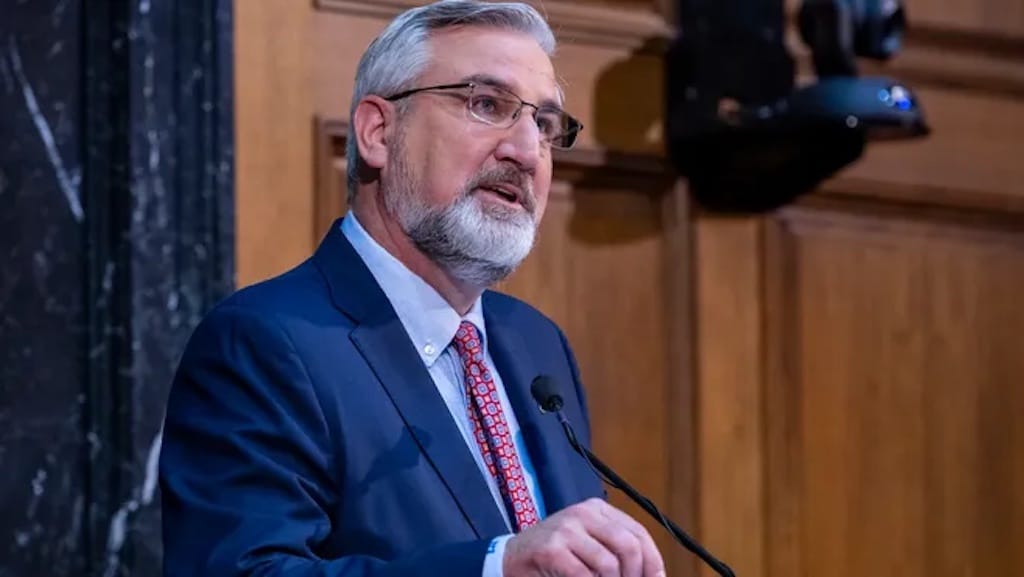FCC Bans Chinese Telecom, NY Affordable Broadband Enrollment, Indiana Gov. Rejects Broadband Restrictions
Pacific Networks Corp. and its subsidy ComNet LLC were terminated in an FCC vote Wednesday.
Justin Perkins

March 17, 2022 — The Federal Communications Commission voted Wednesday to revoke the authority of two telecommunications providers to provide service in the United States due to national security concerns.
Approved on Wednesday during the FCC’s March Open Meeting, the commission adopted an order that ended the ability of Pacific Networks Corp. and its subsidy, ComNet LLC, to provide domestic and international telecommunications service within the U.S.
The FCC found that the companies, which are U.S. subsidiaries of a Chinese state-owned entity, “are subject to exploitation, influence, and control by the Chinese government and are highly likely to be forced to comply with Chinese government requests without sufficient legal procedures subject to independent judicial oversight.”
The ban follows similar ones made by the commission against China-linked telecoms, including China Unicom and China Telecom.
The government is concerned about cyber attacks, which have increased in the U.S. over the past year. Government leaders are concerned about the threat of global cyber warfare amid the conflict between Russia and Ukraine.
Social media platforms like Youtube and Facebook said they will moderate content and pause monetization of content from state-funded media across platforms.
Twitter said Friday it would temporarily pause advertisements in Ukraine and Russia “to ensure critical public safety information is elevated and ads don’t detract from it.”
New York affordable broadband enrollment
New York’s governor Kathy Hochul announced that more than 100,000 families have enrolled in the federal Affordable Connectivity Program.
Celebrating the enrollment Wednesday, Hochul said that she’s proud of the multi-agency partnership to subsidize the cost of broadband access for lower-income communities.
New York State’s department of public service CEO Rory Christian said that the state is prioritizing outreach and consumer advocacy so families can receive access. “I am pleased with the success of this outreach initiative that will help ensure that all income-eligible New Yorkers will have access to high-speed internet at a reasonable price,” Christian added.
The department of public service leads the statewide ConnectALL initiative, an all-of-government awareness and marketing campaign under in coordination with other public-facing state agencies to increase enrollment among eligible New Yorkers. The ConnectALL initiative invests $1 billion in New York to deploy broadband and expand the state’s digital infrastructure.
According to the governor’s office, internet costs an average of $60 per month in the state. Internet service providers in New York, including Spectrum, Altice and Verizon, have continued offering affordable internet options in the state.
The Affordable Connectivity Program gives eligible families $30 a month in assistance toward internet access. Eligible households can also receive a one-time discount of up to $100 to purchase a laptop, desktop computer, or tablet from participating providers if the consumer contributes more than $10 and less than $50 toward the purchase price.
Indiana governor vetoes stringent rules for broadband projects
Indiana’s governor Eric Holcomb rejected a proposal that would require stringent rules for broadband expansion projects.
The governor vetoed legislation Wednesday that would force broadband projects to comply with the state’s economic development program funded by the federal American Rescue Plan Act.
The rules would have required that all broadband infrastructure funding projects comply with the state’s rural broadband program in addition to federal conditions on the receipt of funds, thus imposing additional, time-consuming requirements on the urgent project to expand broadband in the state
“This seemingly innocuous language unfortunately has the practical effect of slowing, if not arresting, approximately $154 million of broadband projects currently under active consideration as part of the $500 million READI grant program,” Holcomb said.
The $50 million READI program, which is entirely funded by the American Rescue Plan Act, allocated $4.25 million to fund high-speed internet expansion in the state.
“It is neither fair nor appropriate to jeopardize or delay the type of transformational and concentrated investments in broadband that would impact at least 28 counties inside seven separate READI regions in our state,” the governor added.
Like many states, Indiana is working out regulatory hurdles before allocating funding from the Infrastructure Investment and Jobs Act. On Wednesday, the Southeastern Indiana Regional Planning Commission and the Purdue Center for Regional Development announced the launch of the state’s first regional digital inclusion plan to bring broadband internet service to more households in local counties.










Member discussion